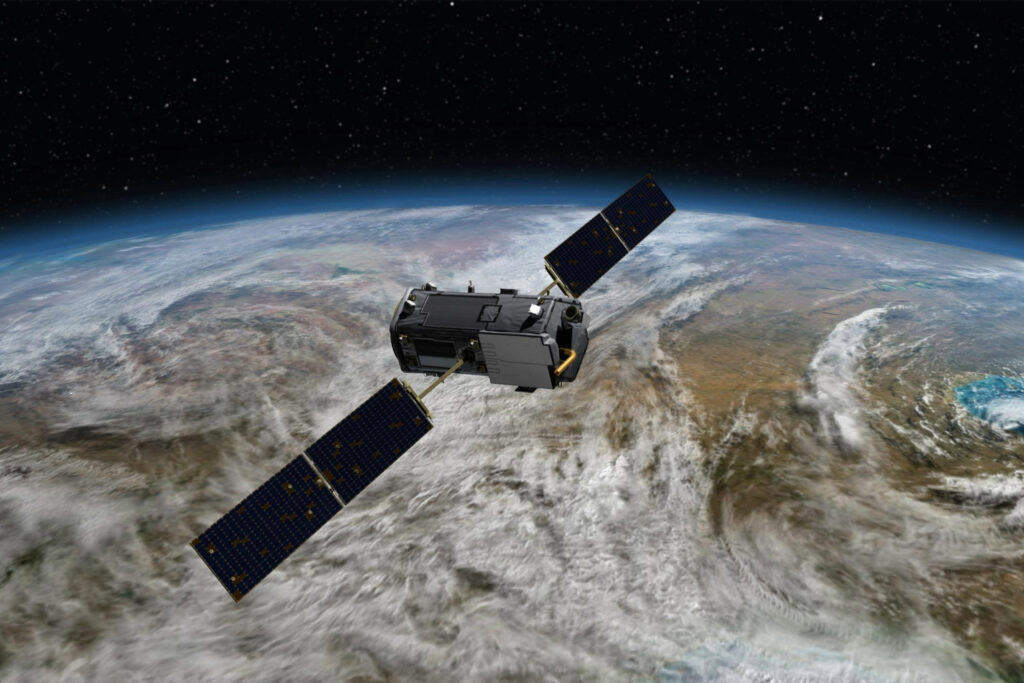The Lexicon for Outer Space Security, now live at spacesecuritylexicon.org, offers a common reference point across cultures, languages and political systems to help make space diplomacy more transparent, more inclusive and better informed.
Outer space today is central to strategic rivalries, digital infrastructure and everyday connectivity. And the words we use to understand what goes on in this increasingly crucial domain matter more than ever.
That’s why the UNIDIR is proud to announce the launch of the interactive digital Lexicon for Outer Space Security, a first-of-its-kind tool designed to foster common understanding, enhance multilateral dialogue and keep pace with the rapid evolution of outer space governance.
The Lexicon was born out of a persistent doubt in multilateral diplomacy: When we talk about space security, are we even speaking the same language?
Across the decades and the various UN forums, delegates have wrestled with terms like space security, weaponization, responsibility and harmful interference, each one carrying different weights in different arenas. Rather than imposing fixed definitions, the Lexicon project has sought to illuminate the differences, revealing the historical, cultural, linguistic and political understandings that shape perceptions and usage.
A truly global effort
The original Lexicon, published in 2023, grew out of a deeply collaborative and inclusive methodology that was developed in partnership with the Secure World Foundation and generously supported by the Republic of Korea, France and Norway.
The project first identified terms frequently used in multilateral discussions – initially in English, and later across all official UN languages – to capture the breadth of usage in diplomatic, legal and technical contexts.

Two core editors led on coordination and drafting of the Lexicon, and a geographically representative and linguistically diverse committee of 11 internationally recognized experts provided substantive input and guidance throughout.
These experts then held two workshops to examine, debate and contextualize key terms, surfacing nuanced understandings shaped by national priorities, cultural experiences and institutional legacies. Between workshops, feedback was collected, drafts were circulated and refinements were made.
When localization began in the six official UN languages, experts with linguistic and cultural competency adapted, refined and contextualized the language. This ensured that the final product could go beyond multilingualism to become a living, multicultural Lexicon offering truly unique coverage of space security discourse in all its complexity.
Space security is relevant to all countries – not just geopolitical rivals, not just countries with their own space programmes or satellites and certainly not just the West. Every single country uses space data and services, and so it is crucial that multilateral discussions on space security issues reflect the entire spectrum of concerns about disruptions to or interference with space systems. Having experts fluent in multiple languages participate in the creation of the Lexicon was our way to ensure that cultural and regional nuances are both understood and taken into account in multilateral discussions.
Victoria Samson, Chief Director of Space Security and Stability for Secure World Foundation
Why digital? And why now?
Between satellite mega-constellations, dual-use technologies and increasing military interest, debates on space security are accelerating rapidly. UNIDIR’s digital Lexicon helps the language of space governance keep up.
Available now at spacesecuritylexicon.org, the new platform allows for rapid updates, expanded multimedia content and deeper context on policy, legal and technical matters. Thanks to the generous support of the European Union, France, Norway and the Republic of Korea, this online platform will be able to grow with the field, capturing new terms, fine-tuning interpretations and providing a dynamic resource to policymakers, practitioners, researchers and students alike.
This initiative will also significantly help make space security debates more accessible to all by presenting explanations of what different actors mean when they use the terminology highlighted in the Lexicon, as well as raising the consciousness of the international community on the existence of different interpretations to encourage a more constructive discussion.
Hellmut Lagos Koller, Chair of the 2022-2023 United Nations Open-ended working group on reducing space threats through norms, rules and principles of responsible behaviours
UNIDIR’s growing digital ecosystem for space security governance also includes the Space Security Portal, which tracks national policies, compares legal frameworks and provides timely updates on international governance instruments. Along with the work of UNIDIR’s Space Security Programme, this growing range of digital tools is helping to create an informed, engaged and globally connected diplomatic community on space.
The way we use language is at the core of international relations. Terminology, and the way it is understood by different actors, can make or break agreements, and foster or hinder progress towards peace. Ensuring clarity and shared understanding around usage and meaning of terminology is particularly crucial in outer space, which is both technically and geopolitically complex. Considering this, the Lexicon encapsulates the essence of what UNIDIR’s Space Security Programme aims to contribute to the international community: increased common understanding to mitigate tensions and ensure the use and exploration of outer space can be carried out for the benefit of all humankind.
Almudena Azcárate Ortega, UNIDIR Space Security Programme Research Lead
From language to action
By providing a common reference point across cultures, languages and political systems, the Lexicon can serve as an enduring platform for transparent, inclusive and informed space diplomacy. The Lexicon works in tandem with broader UNIDIR initiatives – such as other institutional digital tools, regional capacity-building efforts and flagship events like the Outer Space Security Conference – to help advance a shared vision of outer space as a peaceful, cooperative and sustainable environment.
As global efforts to govern space continue to evolve, the Lexicon will become an essential companion for those working to ensure that language is a bridge, not a barrier, to collective action.
Explore the Lexicon
Read the Lexicon 2023 publication
Learn more about UNIDIR’s Space Security Programme
